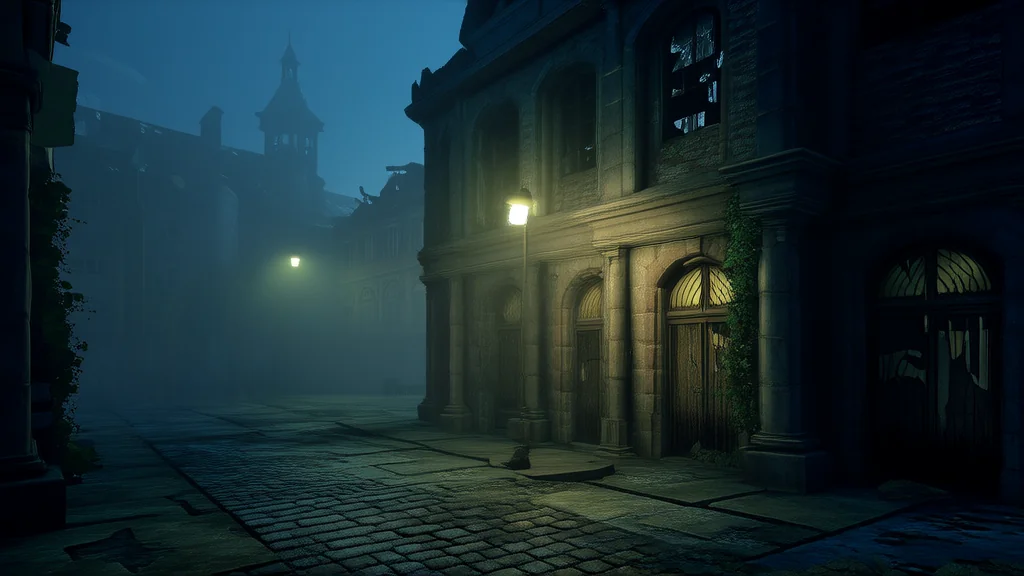🔮 Weird Tales & Urban Legends
The Forgotten Library of Elmsworth and the Secrets It Still Holds

In the quiet town of Elmsworth, where fog clung to the streets like a forgotten memory, there was an old library that no one seemed to remember. It stood at the edge of the woods, its windows boarded up and its door rusted shut. Most people said it had been abandoned for decades, but some whispered that it still held secrets.
Elias Vane, a young historian with a fascination for the unknown, had spent years chasing rumors of the library. He found old maps, faded letters, and even a journal written in a strange hand by a man who claimed to have seen things he could not explain. The final clue came from a local baker, who muttered about "the books that never leave."
One rainy evening, Elias finally found the place. The path to the library was overgrown, the ground soft and muddy beneath his boots. When he reached the door, it creaked open without a sound, as if waiting for him. Inside, the air was thick with dust and the scent of aged paper. Shelves lined the walls, filled with books that looked untouched by time.
He wandered through the aisles, running his fingers along the spines of volumes bound in leather and cloth. Some titles were in languages he didn’t recognize, others bore names of authors long forgotten. One book, however, caught his eye—it was thin, black, and had no title. Its cover was smooth and cold to the touch.
As he opened it, the pages were blank. But as he turned them, words began to appear, written in a flowing script that seemed to shift and rearrange themselves. He read aloud, and the words echoed in the empty room, as if the library itself was listening.
The text spoke of a hidden chamber beneath the library, a place where knowledge was kept not by ink, but by memory. It described a ritual that allowed one to access the thoughts of those who had come before, but warned that once you entered, you might not return the same.
Curiosity overpowered caution. Elias followed the directions in the book, which led him to a trapdoor beneath a heavy desk. The floorboards groaned as he pushed them aside, revealing a narrow staircase descending into darkness. He lit a candle and stepped down, the air growing colder with each step.
At the bottom, he found a circular room with a single table and a chair. On the table lay a mirror, its surface rippling like water. As he approached, he saw his own reflection—but it wasn’t moving. It was watching him.
He reached out, and the mirror shattered, sending shards flying. The room filled with a low hum, and the walls began to pulse with a faint light. The books around him fluttered open, their pages turning on their own. Voices whispered from the shadows, speaking in a language that felt both foreign and familiar.
Then, silence.
Elias fell to his knees, his breath shallow. The mirror was gone, and the books had closed. He stumbled back up the stairs, heart pounding, and emerged into the night. The library was gone, replaced by an empty lot covered in weeds.
He returned to the town, but no one remembered the library. Not the baker, not the librarian, not even the mayor. It was as if it had never existed. Yet Elias kept the book, now filled with his own handwriting, as if it had always belonged to him.
Years passed, and Elias became a reclusive figure, often seen wandering the woods, muttering to himself. Some said he had gone mad. Others claimed he had discovered something too dangerous to share.
But the last entry in the book reads: "I am not sure if I left the library, or if it left me."
发布于 en
🔗
相关站点
- AI Blog — AI 趋势与技术新闻